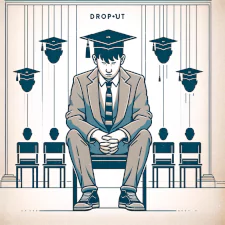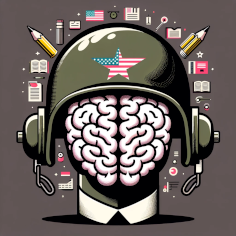Educational Frontlines
People with limited education often find themselves on the vulnerable frontlines of the war against political propaganda. A lack of a robust educational foundation makes it challenging to critically assess and navigate the complex streams of information, rhetoric, and ideological messages that flood the political landscape.
Key Takeaways
- Educational Importance: A robust educational foundation is essential for developing critical thinking skills to navigate political propaganda.
- Vulnerability Factors: Limited education and exposure to diverse information sources increase susceptibility to manipulation.
- Empowerment Through Education: Promoting media literacy and critical thinking can empower individuals to resist political manipulation.
Table of Contents
Why Some People Are Easily Manipulated by Politicians
Such individuals may face difficulties in discerning credible sources from manipulative content, making them susceptible to misinformation and biased perspectives. Additionally, an inadequate educational background can limit one’s ability to engage in thoughtful and informed discussions about political matters, often leading to a reliance on oversimplified narratives or populist rhetoric.

1. Vulnerability to Manipulation:
- Limited Critical Thinking: Without adequate education, individuals might lack the critical thinking skills needed to evaluate the authenticity and intent of propaganda messages.
- Emotional Appeal: Propaganda often uses emotional appeals, which can be particularly effective against those who lack the educational tools to analyze such messages critically.
2. Information Access and Literacy:
- Limited Sources: Poorly educated individuals might have limited access to diverse information sources and may rely on simplistic or biased messages.
- Digital Literacy: Lack of education may also imply a lack of digital literacy, making it difficult to navigate the internet to verify information or access diverse viewpoints.
3. Understanding Complex Issues:

- Simplification: Political issues are often complex, and propaganda tends to simplify these issues. Without educational grounding, individuals might not question simplified narratives.
- Contextual Understanding: Lack of education can result in a limited understanding of historical, social, and economic contexts, which are crucial for making sense of political messages.
4. Susceptibility to Authoritative Figures:
- Trust: Poorly educated individuals might be more likely to trust authoritative figures or sources without questioning, as they may lack the confidence or tools to challenge these sources.
- Conformity: There might be a tendency to conform to popular or authoritative opinions due to a lack of educational empowerment to form independent viewpoints.
5. Social Networks and Echo Chambers:
- Limited Exposure: Social networks might be limited to like-minded individuals or those with similar educational backgrounds, reducing exposure to diverse perspectives.
- Confirmation Bias: Being in echo chambers can reinforce existing beliefs and make individuals more susceptible to propaganda that aligns with these beliefs.
6. Civic Participation:
- Informed Voting: Lack of education can affect the ability of individuals to make informed voting decisions, as they might be more influenced by propaganda.
- Advocacy and Activism: Poorly educated individuals might feel less empowered to participate in advocacy or activism, as they might feel less informed or confident.
Conclusion:
Education plays a vital role in empowering individuals to navigate the political landscape and critically engage with propaganda. Lack of education can lead to vulnerability to manipulation, limited information literacy, and a reduced capacity to participate effectively in democratic processes. Improving access to quality education and promoting media and civic literacy are essential steps in mitigating these disadvantages.
The value of education extends far beyond academic credentials; it is about the continuous advancement of knowledge and understanding, which benefits individuals and society as a whole. Education, at any level, empowers individuals with the skills to think critically, solve complex problems, and engage effectively with the world around them. A culture that celebrates ignorance or expresses pride in the rejection of further learning undermines not just individual potential but also societal progress.
It is crucial, then, to foster a culture that values lifelong learning and recognizes the myriad ways in which education enriches personal and collective life. Encouraging curiosity and the pursuit of knowledge should be a societal norm, with the understanding that education does not end with formal schooling—it is an ongoing process that enhances our ability to contribute meaningfully to society, adapt to change, and understand diverse perspectives.
Promoting the idea that advancing one’s knowledge is a sign of strength and adaptability, not a point of alienation, can help shift the cultural perspective. This shift can lead to greater respect for educational achievements and a more robust engagement with the challenges and opportunities of our times. By valuing education and rejecting the notion that there is virtue in not seeking knowledge, society can move towards a future that is more informed, compassionate, and resilient.
Frequently Asked Questions
What is political manipulation?
Political manipulation involves tactics used by politicians to influence and control public opinion, often through misinformation, emotional appeals, and exploiting cognitive biases.
Why are some people more susceptible to political manipulation?
Individuals with limited education or critical thinking skills may find it harder to discern credible information from propaganda, making them more vulnerable to manipulation.
What techniques do politicians use to manipulate people?
Techniques include spreading false information, emotional appeals, oversimplified narratives, and exploiting fears and prejudices.
How can people protect themselves from political manipulation?
Enhancing education, promoting critical thinking skills, and encouraging media literacy are crucial steps in protecting against manipulation.
Why is media literacy important in combating political manipulation?
Media literacy helps individuals evaluate and analyze information, distinguish between credible sources and misinformation, and make informed decisions.

you will have an awesome blog right here! would you prefer to make some invite posts on my weblog?